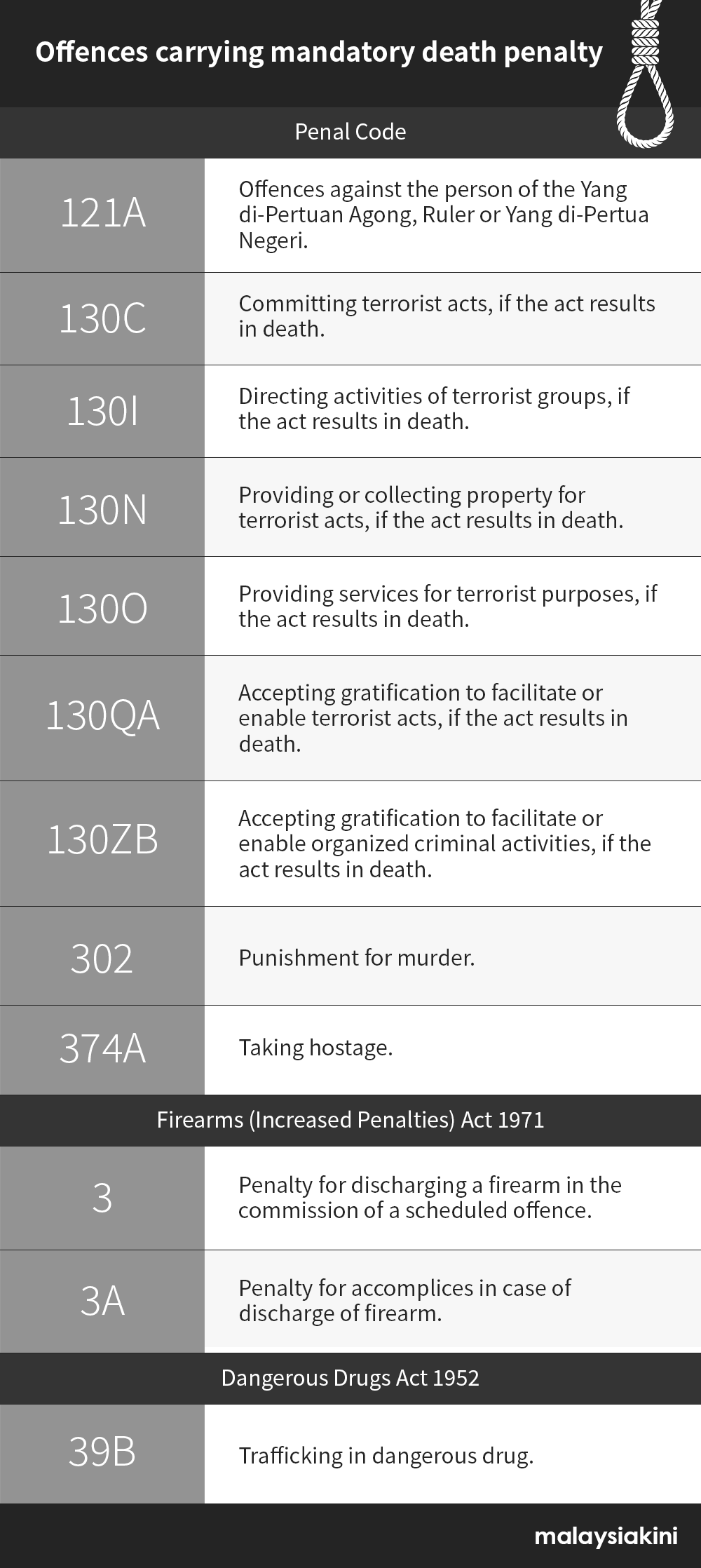The abolition of the mandatory death penalty requires Parliament to amend existing laws to create alternative punishments for offenders, a legal practitioner said.
Describing the decision as an opportunity for offenders to change for the better, lawyer Ahmad Shamil Azad Abdul Hamid, however, said the alternative punishment should commensurate with the offence committed apart from being able to serve as a deterrent.
“For serious offences, a long prison sentence is an appropriate substitute, especially if the sentence has whipping added.
“On average, offenders accused in court are more afraid of whipping and most of them will choose to be sentenced to long imprisonment, compared to a high number of strokes," he said when contacted by Bernama in Kuala Lumpur yesterday.
He was commenting on the government’s decision to abolish the mandatory death penalty and to grant judges discretion in sentencing.
Minister in the Prime Minister’s Department (Parliament and Law) Wan Junaidi Tuanku Jaafar in a statement today said the decision was reached after he presented the “Report on Substitute Sentences for the Mandatory Death Penalty” at the cabinet meeting last Wednesday.
Wan Junaidi said the cabinet also agreed that further study is carried out on the proposed substitute sentence for 11 offences carrying the mandatory death penalty, one of which is under Section 39B of the Dangerous Drugs Act 1952 (Act 234) and 22 offences carrying the death penalty but with the discretion of the court.
Shamil believed that replacing the mandatory death penalty with a long prison sentence and whipping can have an impact on efforts to reduce the number of repeat offenders.
The former magistrate said the “an eye for an eye” approach in law has long been avoided in imposing punishments, especially among developed countries and the approach now mostly taken by the global community leaned towards rehabilitation.
In addition, Shamil also suggested that the government improve prison infrastructure to avoid congestion following an increase in jail sentences, including those who were ordered to serve long periods of imprisonment.
Issue of prison capacity
Meanwhile, crime analyst Kamal Affandi Hashim opined that the abolition of the mandatory death penalty meant that the strongest punishment that can be imposed on offenders is life imprisonment for scheduled offences.
“I am confident that when the government makes a decision, it is done with transparent procedures and not based on the urging of any party. It has certainly taken into account various perspectives from qualified stakeholders.
“The good thing from this abolition is the change in Malaysia's position in the immigration-related scores and international human rights standards. However, it also means that the issue of prison capacity needs to be addressed if the number of life sentences increases," he said.
Kamal also believes that the abolition of the mandatory death penalty has been carefully studied including the spillover effect.
“Taking that into account, in my opinion, it has no relevance to the increase in cases because the issue here is related to prison management.
“We must accept that even if the form of punishment is (changed), criminal cases such as drug trafficking will still happen as before. It has no effect if the criminal is already determined to carry out their intent,” he added.
- Bernama




No comments:
Post a Comment
Note: Only a member of this blog may post a comment.